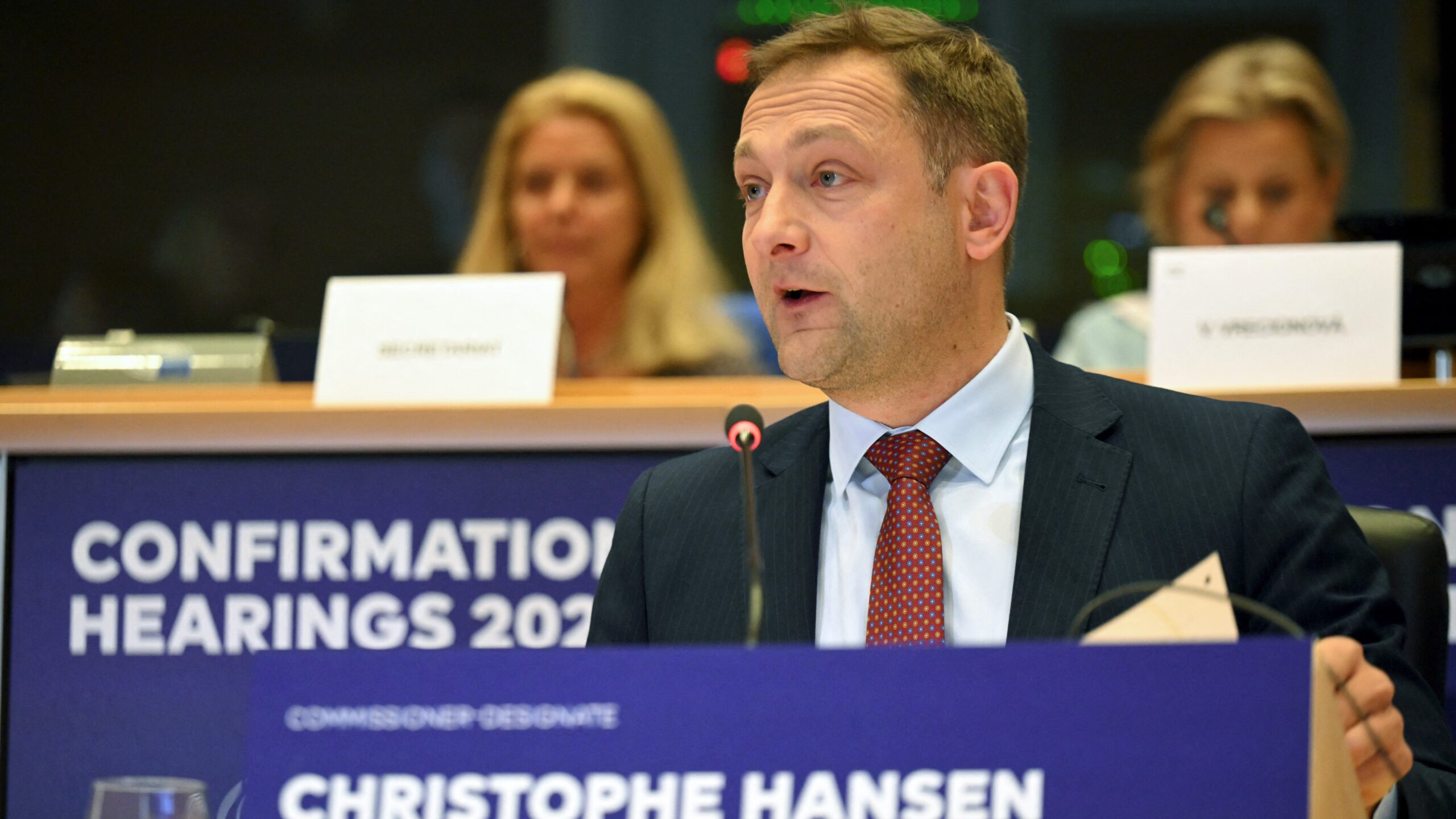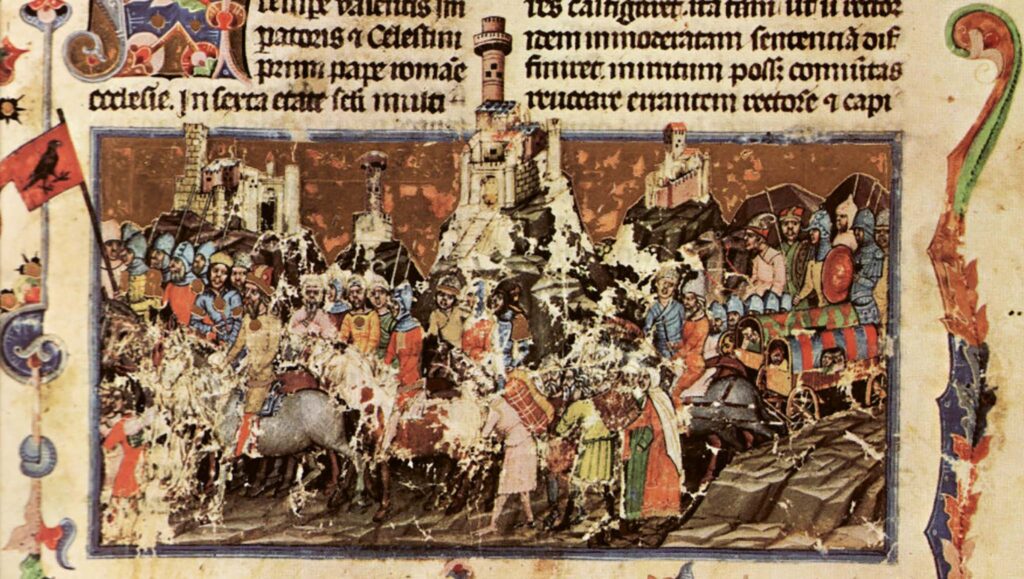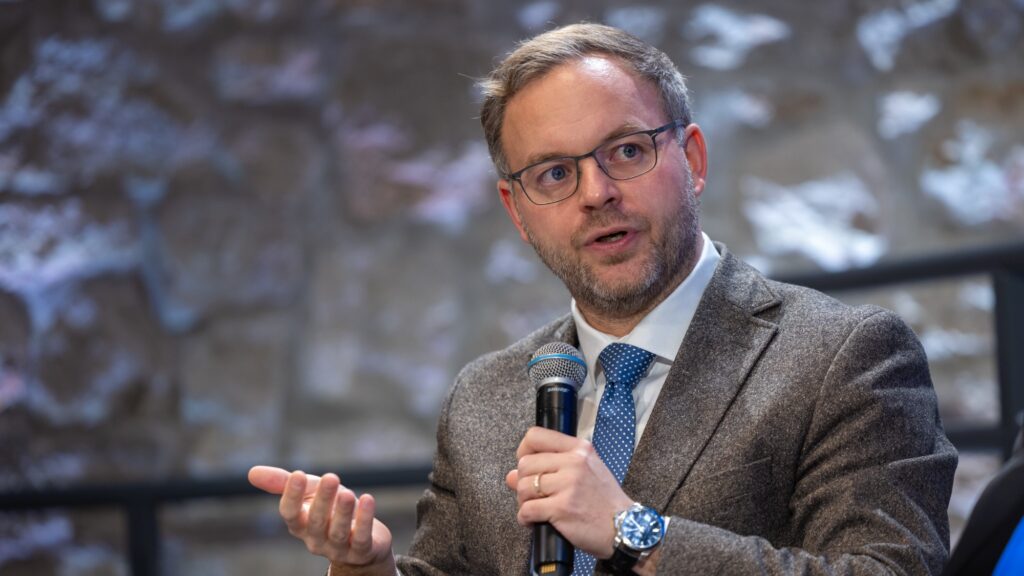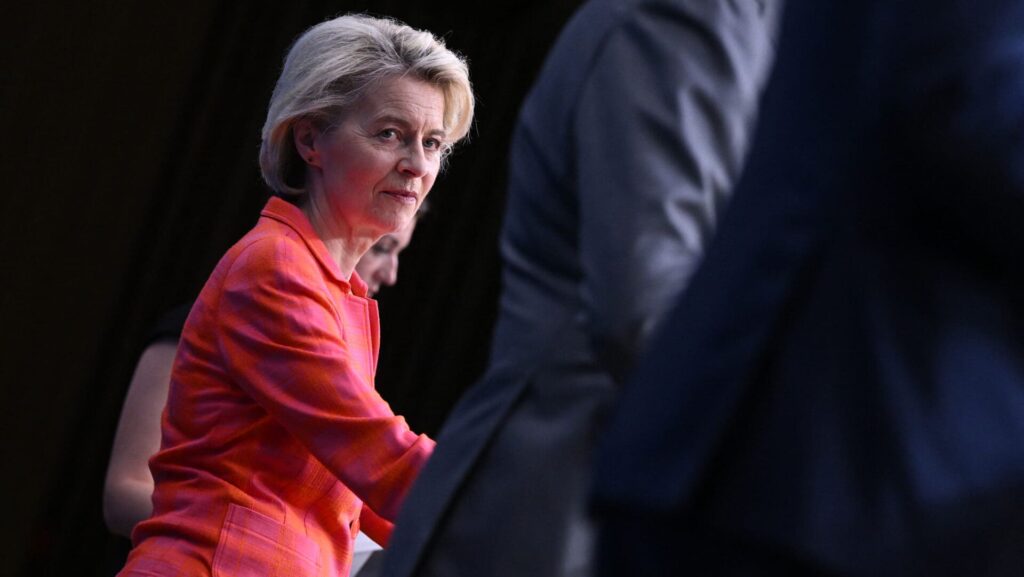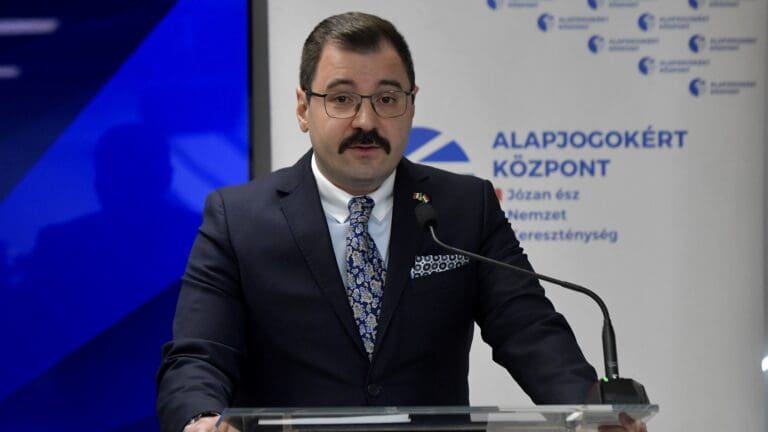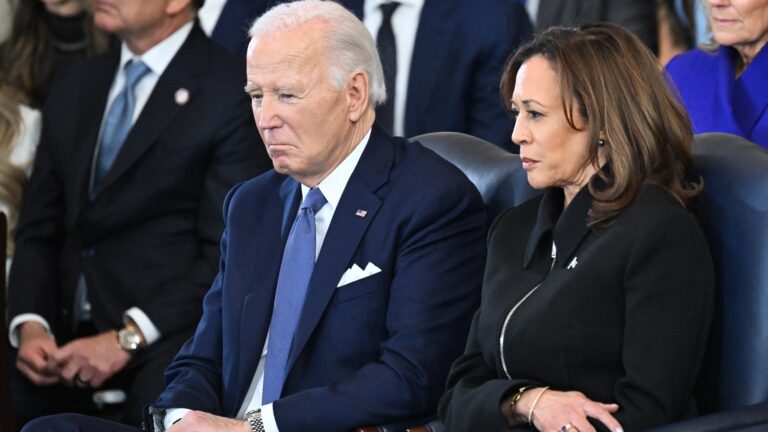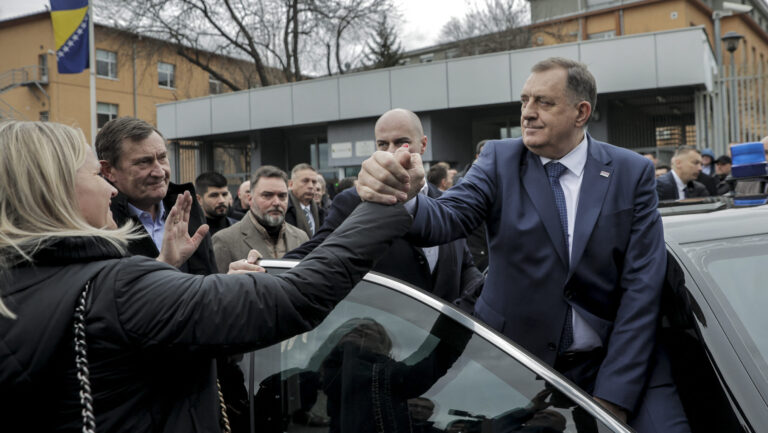The hearing of Commissioner-designate for Agriculture Christophe Hansen in the European Parliament sparks optimism that a less ideological agricultural policy may be coming in the next five years.
Agricultural policy is the oft-forgotten behemoth of European politics. In and of itself, the Common Agricultural Policy—Europe’s complex framework of subsidies, aid programmes and other instruments of support for farmers and landowners, known as CAP—accounts for nearly a quarter of the entire EU budget, as of 2022. For the vast majority of European farmers, CAP support is of paramount importance, serving, at best, as a welcome aid to an already toiling and overregulated field and, at worst, a lifeline for their activity’s very survival. As an EU-managed programme, the CAP is regulated and implemented between Brussels and the 27 national capitals, albeit with a notable power imbalance in favour of the former. The European Institutions have traditionally sought to keep as much control over the Union’s food policy as legally possible, including, but not restricted to, agricultural policy per se.
Since Ursula von der Leyen became President of the European Commission and her flagship European Green Deal was announced, agriculture has become once again a battleground of ideas, policies, and, ultimately, livelihoods. Von der Leyen completed the amalgamation of agricultural and environmental policies and, during her first five years, the subordination of the latter to the former. The strong reaction that ensued was spearheaded by the farmers themselves, inspired by a protest movement originating in the Netherlands. Farmers took to the streets and to the ballot boxes to protect not only the sector, but their own survival, against an increasingly aloof political-bureaucratic class.
Of Labyrinths and Tractors
Policymaking at the European level is complex by design. Several Eurosceptic thinkers and politicians have attributed this complexity to a desire by the Institutions to retain their inscrutable aura towards citizens. Decision-makers—the artificers of European bureaucracy and policies—are often perceived and presented as modern-day descendants of Daedalus, skilfully crafting their labyrinth, wherein the Minotaur lies hidden. In fact, the most likely, and most realistic, reason behind this complexity is the multi-layered structure of EU policymaking, which relies on delicately crafted compromises between Member States, Institutions, and thematic areas. When put together as a part of a legislative procedure, the Institutions resemble less the neatly designed Cretan abode of the Minotaur and more what a labyrinth would resemble if juxtaposed into a Babylonian ziggurat—a multi-level, multi-layered system of inter-connected, yet independent rooms. Each unit, each sector, has their own competence and well-defined roles—but as policies become more intertwined, and as competencies are expanded and interinstitutional boundaries become blurry, so grows their interdependence in the development and implementation of evermore complex legislation.
The CAP represents, in many ways, the apotheosis of Brussels-made inscrutability. It is one of the oldest, and longest-running EU-level policies, being extant in different shapes and forms since the establishment of the European Economic Community in the 1950s. Despite the strong enthusiasm for the European project in the aftermath of WWII, agricultural policy was, and had up to that point been, firmly in the realm of national politics. Farmers accounted for much larger shares of the electorate in the 1950s than they do in the present day, and most conservative and Christian democratic parties in continental Europe had a strong rural outlook. Much of the credit for the existence of a European dimension to agricultural policy is due to EU Founding Father Paul-Henri Spaak, who headed a Committee composed of diplomats from the six members of the European Coal and Steel Community[1] and tasked with writing a report to be used as the basis for the drafting of the Treaty of Rome establishing the EEC. In the view of the Spaak Committee, the creation of a European common market not including agriculture would be illogical and impractical.[2] Agriculture was, thus, included into the Treaty of Rome, not only as a component of the newly founded common market, but as a sector of paramount importance, to which special attention ought to be dedicated. The Treaty included articles making it mandatory for policymakers to consider the significant differences in the agricultural outlook of each Member State, and to provide funding for the sector in order to ensure its stability and continuity. The CAP as a policy was established with a clear mandate to be a lifeline for farmers and a foundational pillar in the restructuring of Europe’s fledgling rural communities, upon which rested not only the continent’s food security but also a significant part of its cultural and civilizational wealth—as stated by the first President of the European Commission, Walter Hallstein.[3]
The CAP was not the EEC’s raison d’être, nor was it ever intended to be so. It was of Coal and Steel, and not of fields and crops that Robert Schuman spoke when he called on Europe to ensure that ‘toute guerre entre la France et l’Allemagne devient non seulement impensable, mais matériellement impossible’.[4] And yet, it has accounted for the largest share of the bloc’s budget since its establishment in the early years of the Treaty of Rome. More than any other, European farm policy has acquired a larger-than-life character. Its three-letter acronym resounds heavily in the ears of European politicians and bureaucrats in the modernist corridors of Brussels and Strasbourg, and even more so in those of farmers as they toil in the wide, green fields of Europe. Relations between the two, intermediated by influential Brussels-based farmers’ and landowners’ organizations, oscillate between the tense and the constructive, depending on the former’s willingness to address the latter’s concerns. In recent decades there has also been increased pressure by environmentalist NGOs and civil society groups for either a reduction in CAP funds or their conditioning to environmental targets, notwithstanding potential damages to the farming sector.
These positions, once the domain of a fringe group of Green-aligned organizations, were elevated into the mainstream of European institutional policy during the first von der Leyen Commission, between 2019 and 2024. Von der Leyen’s flagship initiative, the European Green Deal, consisted of a reorienting of all policy areas towards environmental goals—even if at the detriment of their own, preestablished objectives. The Green Deal, and the legislative proposals to which it acted as a political and rhetorical medium, aggravated the already tense relations between CAP beneficiaries and bureaucrats, culminating in the farmers’ protests that swept Europe throughout 2023 and 2024.
Much of the protesters’ impetus was later translated into votes for agrarian and right-wing parties that have vowed to protect the sector and combat this burgeoning green orthodoxy. Environmentalist parties suffered and lost space, while those siding with the farmers—whether centrist or right-wing—triumphed. Von der Leyen, known for her political acumen, took heed of the situation and sought to appease those discontented, while not abandoning altogether the Commission’s overall green agenda. The nomination of Christophe Hansen, from Luxembourg, as Commissioner-designate for Agriculture is a timid step in this new direction. Hansen’s profile and policy views, if not hampered by von der Leyen herself, or other members of the College of Commissioners, could help steer European agri-food policy back into its original mission of preservation of the continent’s farms and fields—as vast as the civilizational value they bring to Europe.
A Study in Luxembourgish Pragmatism
Christophe Hansen as a Commissioner for Agriculture is a compromise so perfect only a Luxembourgish politician in Brussels would be able to carve with such dexterity. The 42-year old former MEP is a member of the Christian Social People’s Party (CSV), Luxembourg’s ruling party for most of its existence, and the political home of two former Presidents of the European Commission. The CSV is a quintessential Christian democratic party of the Germanic world: a mildly conservative, centrist group with mostly pro-farmer positions, a remnant of its early days as a strongly agrarian force. Hansen himself is a long-term party member hailing from a family of farmers, serving as a MEP since 2018. His cousin, Martine Hansen, is the current Minister for Agriculture of Luxembourg. As an MEP he worked intensely with matters of international trade, including the EU-Mercosur agreement, one of the most controversial free trade agreements ever negotiated by the EU due to alleged negative impacts on the continent’s agricultural sector. In his Mission-Letter, a document signed by the Commission President and sent to each Commissioner-designate with a summary of her main expectations and demands to them in their fulfilment of their roles, the Luxembourgish was tasked with steering the EU’s agricultural policy back into a sensible, productive direction. This, in the aftermath of the first phase of the Green Deal, meant attending to the sector’s needs, preserving food sovereignty, while preserving the bloc’s environmental goals—the memory of the protests and electoral backlash serving as a Sword of Damocles hanging above every Commissioner’s head.
Hansen was approved by the European Parliament’s Committee for Agriculture in the late hours of the 4th of November, after a nearly two-hour long hearing that touched upon matters ranging from trade to environment to the CAP itself. For his nomination to be official, he will have to be approved, alongside the entire College, by the entire Parliament in Plenary and, subsequently, by the European Council. Despite his mild demeanour and centrist credentials, what Hansen offers is a distinctly more pro-farmer outlook than that of the previous quinquennium. The Luxembourgish was adamant in his defence of the CAP and in the need to increase funding for farmers beyond the policy. The CAP, according to Hansen, is an important but incomplete policy, with many difficulties faced by European farmers deriving not from a lack of funding, but rather from low crop prices, difficulties in generational renewal, and regional inequalities between Western and Eastern Member States. Hansen supports reviewing the internal divergences in financial support between pre- and post-2004 Member States, having pledged to raise the issue not only in the review of the next Multiannual Financial Framework, but also in future discussions over CAP reforms.
In a jab at the past five years of Green Deal-related policymaking, a true study in Daedalian labyrinth-building, Hansen supported the simplification of much of the EU’s environmental legislation, agreeing with the much-repeated argument that farmers and the EU’s agricultural sector in general is harmed by the bloc’s overwhelming bureaucracy. This is reflected especially in the approval of new substances such as pesticides and other plant protection products, which, under present rules, can take as long as ten years. Hansen acknowledged the need to transition from a model of overreliance on certain such substances, a key demand of Green MEPs and other environmentalists within the Commission and Parliament but defended it could not be done without providing farmers with alternative tools and substances that preserve similar levels of productivity without relevant increases in production costs. This position was shared by Hansen’s predecessor in the office, Polish conservative Janusz Wojciechowski, but opposed by the infamous former Green Deal head and Commission Executive Vice-President Frans Timmermans, who was behind the ultimately aborted Sustainable Use of Pesticides Regulation (SUR) proposal, in the previous Parliamentary cycle. If approved, the SUR would have significantly limited farmers’ freedom of choice in terms of plant protection products, prohibiting several widely used substances without providing a realistic timeline for the approval of affordable alternatives. The SUR was, in fact, one of the leading causes of the farmers’ protests in the early months of this year.
One key area of disagreement between Hansen and the farmers, which on this topic are joined by a number of key Member States such as France and Austria, is on International Trade. During a key part of the hearing, Hansen was asked his opinion on the EU-Mercosur agreement by Gilles Pennelle, a French MEP from Rassemblement National, part of the Patriots of Europe Group in the European Parliament. In line with his previous record as a MEP, and with his own country’s position on the matter, Hansen emerged as a strong proponent of the agreement, defending its signature and ratification by the EU, despite French objections thereto. This reply led to strong reactions by agricultural interest groups in Brussels and beyond. COPA-COGECA, the umbrella group representing European farmers’ and farmer cooperatives’ associations in Brussels, addressed von der Leyen directly in a public letter calling for a ‘responsible’ trade policy, i.e. one that, in their view, would de facto exclude the EU-Mercosur agreement. Another important point of contention between Hansen and farmers’ organisations is the proposed Deforestation Law. Hansen was the rapporteur of the proposed text in Parliament, and continues to defend it, despite severe criticism from both agricultural groups and conservative parties—including many in the EPP.
Court Politics, Farm Policies
Unlike many other EU-level policies, the clear domain of a specific Directorate-General, and managed by one Commissioner, Agricultural policy touches upon several areas. This makes the job of the Commissioner for Agriculture particularly complicated, as it comes with high expectations and, in several topics, with relatively limited room for manoeuvre. Wojciechowski, Hansen’s predecessor, was also a staunchly pro-farmer politician. He sought to attenuate some of the harshest conditions imposed on farmers by the EU’s environmental rules and was crucial in obtaining more favourable quotas for European farmers in the EU’s Autonomous Trade Measures with Ukraine, renewed last June. Nevertheless, within Brussels, Wojciechowski was often sidelined by other Commissioners insofar as Green measures, such as the so-called Nature Restoration Law, were concerned, partly due to his membership in Poland’s Law and Justice (PiS) party, known for its conflicts with Brussels and its support for Hungary.
In this sense, Hansen has two advantages vis-à-vis his predecessor. Firstly, as a member of the CSV, a party with a long tradition in European policymaking that belongs to the EPP, the leading force in von der Leyen’s majority, he will have more political capital than his predecessor, the sole ECR member in a mostly centrist, quasi-left-leaning Commission. Secondly, the outlook for Agricultural policy has changed drastically between 2019, when the Green Deal was first announced, and 2024. Hansen’s replies and statements in his hearing are not mere sophistry intended to win votes from a broad church, but are, rather, in line with his career as a centre-leaning, moderately conservative agrarianist politician. His credentials, as well as those of his party, allow him to navigate both the farmers’ milieu and that of the EU political and bureaucratic mainstream. On the other hand, Hansen will likely face strong opposition in certain measures particularly from Spanish socialist and environmental hardliner Teresa Ribera, the proposed Executive Vice-President for Clean, Just and Competitive Transition—a role that will see her dealing with several climate-related files that touch upon agri-food policies.
Christophe Hansen is not likely to be the saviour of European agricultural policy. Nor could he be, as no Commissioner, despite their theoretically broad powers in their fields, can move independently from either the rest of the College or, more importantly, the will of the Commission President herself. Nevertheless, his appointment heralds positive changes to the EU’s agricultural policy. Hansen is expected to have a more positive relationship with von der Leyen than Wojciechowski did, thus being able to exercise more influence. His ideas regarding external convergence are particularly relevant as the EU approaches 2027, when a new MFF will be negotiated and voted on by Member States. Ultimately, as the son and brother of farmers, Hansen is, himself, a man of the fields. He is aware that without pragmatic reforms, de-bureaucratisation, and the end of overregulation, the European agricultural sector cannot thrive. Without a paradigm shift from the ideologized Green-centric policymaking of the late 2010s, it cannot survive. The next five years will tell the story of whether the bureaucrats have taken heed of the cries coming from across Europe, or whether the tractors will once again descend onto the Place du Luxembourg.
[1] Belgium, France, Italy, Luxembourg, The Netherlands, and West Germany.
[2] CVCE, The Spaak Report (21 April 1956). Available at: https://www.cvce.eu/en/recherche/unit-content/-/unit/02bb76df-d066-4c08-a58a-d4686a3e68ff/22ee1520-b285-4dd4-b69d-a8d807fb4669
[3] Rosemary Fennell, The Common Agricultural Policy: Continuity and Change, Oxford, Oxford University Press, 1997. 8.
[4] European Union. Déclaration Schuman – mai 1950. Available at: https://european-union.europa.eu/principles-countries-history/history-eu/1945-59/schuman-declaration-may-1950_fr

